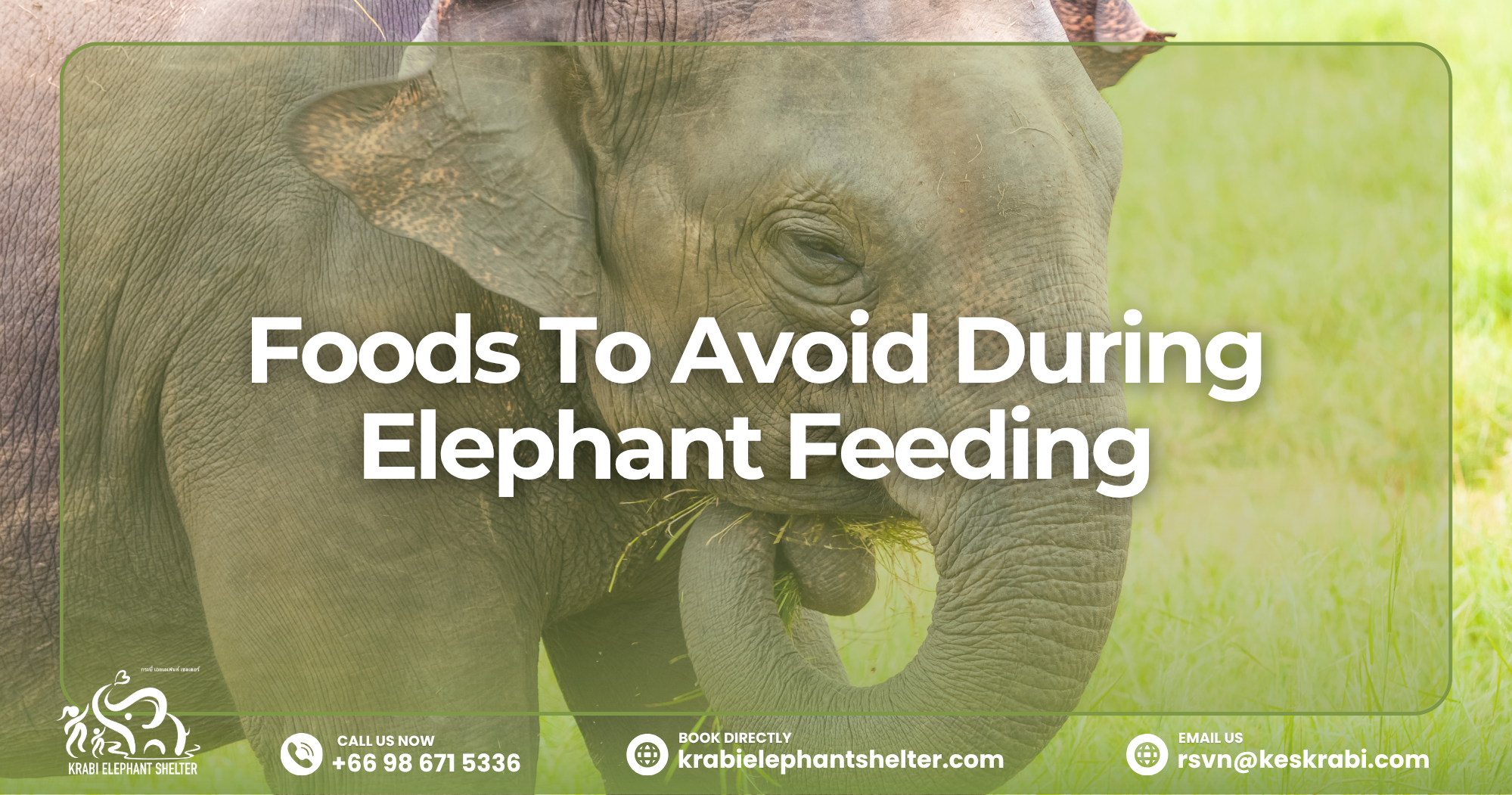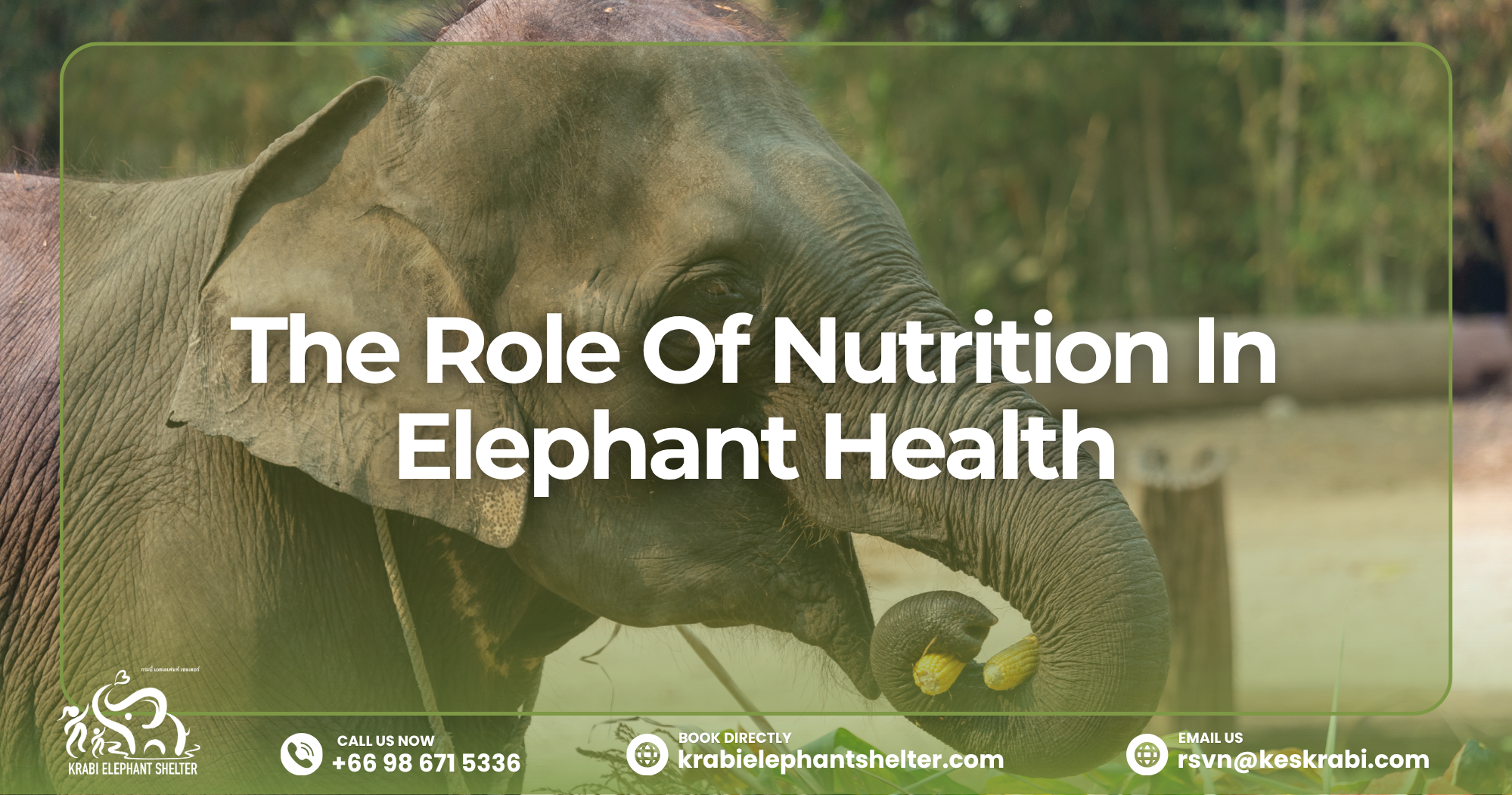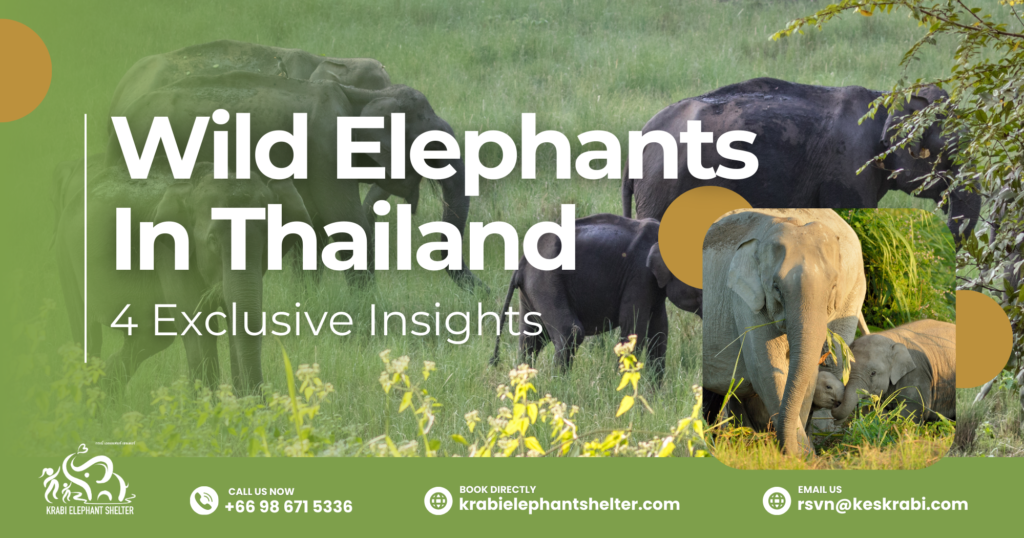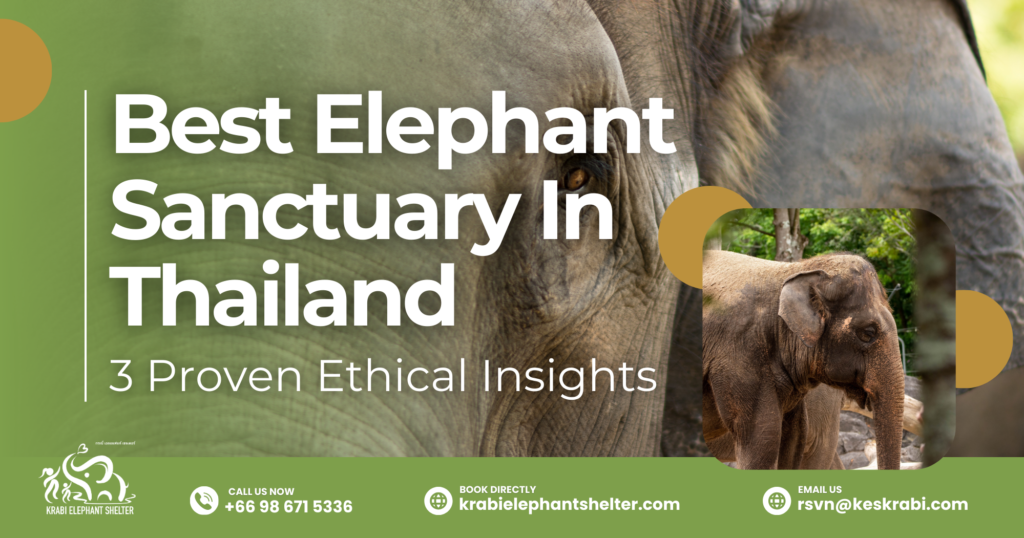Elephant feeding is more than providing these mammals with food; it is a gorgeous act of love, honor, and intimacy. When properly done, it assists them to be healthy, happy, and dignified. In Krabi Elephant Shelter, all the feeding is heart-to-heart. It is not entertainment but food, medicine, and restoring faith in elephants who have suffered so much.
The fact that we know what elephants eat also makes us know how intelligent and sensitive they are. These are the herbivores that are plant-loving and can survive on a natural diet; however, not all plants are safe for them. Responsible feeding of elephants implies awareness of what type of food would make them grow strong and which types might cause them harm. The visitors with the appropriate knowledge and with a caring attitude have a role to play in helping these wonderful creatures receive ethical and sustainable treatment.
What Elephants Eat: Natural And Nutritious Choices
Elephants spend the greater part of their day in the wild searching for food. In one day, they can consume up to 150 kilograms of vegetation! Caretakers in Krabi Elephant Shelter reproduce this pattern of feeding in the wild. They feed the animals on diverse types of fresh fruits, grass, and plants that are favorites of the elephants.
Elephants are usually fed on bananas, sugarcane, watermelon, bamboo, pumpkin, and local grasses. These eco-friendly foods are sources of energy and hydration as well as necessary nutrients. However, moderation is key. Sugarcane and bananas are sweet and tasty and need to be administered sparingly. To digest well, elephants have to eat food that is high in fiber, mostly made of bamboo and grass.
Krabi Elephant Shelter will make sure that each bite contributes to physical well-being as well as emotions by concentrating on natural and local food.
Foods To Avoid During Elephant Feeding
One can easily imagine that elephants can feed on anything, but that is not the case. Refined foods or sweetened food may disturb their digestive system, leading to eventual health complications. Being able to avoid something is ethical elephant feeding.
Bread, dairy, or salty snacks can look innocent to a human being; however, these are hazardous to an elephant. This is why caretakers at Krabi Elephant Shelter constantly remind the visitors that it is necessary to feed in a responsible manner. Tourists are urged to bring natural foods only, according to the recommendations of the employees.
It is not just that it is a rule to avoid harmful treats, but it is also a way to demonstrate actual care. Any healthy and safe meal contributes towards a longer and happier life for an elephant. Ethical elephant feeding ensures that these gentle giants receive nourishment that truly benefits their well-being.
Feeding With Care: How To Feed Elephants Safely
One of the most touching experiences in Krabi is elephant feeding. To do it safely and appropriately, however, visitors need to know how to do it. At Krabi Elephant Shelter, professional caretakers demonstrate to visitors how to feed the elephants. They show two methods: placing the food in the trunk or inserting it directly into the elephant’s mouth. The choice depends on the elephant’s comfort.
Smooth and slow movements are necessary. Elephants are tender and at the same time highly sensitive to human feelings. The trip can be memorable when the visitors come with good intentions and patience. Respect is all it takes to care for good elephant feeding, keeping a comfortable distance, listening to the caretakers, and letting the elephant set the pace.
The Role Of Nutrition In Elephant Health
Elephants are also healthy, active, and powerful through an appropriate diet. They, similar to human beings, depend nutritionally, and this affects their energy, mood, and even their lifespan. This is the reason why the Krabi Elephant Shelter is a serious way of feeding the elephants. Each meal will be calculated to have the appropriate proportions of carbohydrates, fiber, and minerals.
The meals are provided a few times per day, imitating the natural grazing patterns. Caretakers occasionally supplement food with vitamins, minerals, and fruits on top of a full and balanced diet. Good nutrition is the beginning of healthy elephants who are more playful, social, and calm.
Why Elephant Feeding Is More Than A Tourist Activity
Elephant feeding is not an activity that will provide tourists with quick photos and entertainment at Krabi Elephant Shelter. It is a learning experience that opens the hearts and minds of the visitors. Each feeding session conveys the message of the importance of respect and responsibility towards animals.
A significant number of elephants in the shelter were taken off their feet in the hard labor industry or the tourism industry. Nourishing them properly assists in restoring their faith in man. By making visitors partake, they are not feeding an elephant; they are curing one. It is a little yet significant gesture, which serves as a symbol of hope and kindness.
Sustainable Practices At Krabi Elephant Shelter
At Krabi Elephant Shelter, sustainability is the core of all activities it does. Krabi farmers provide vegetables and fruits to feed the elephants. This practice benefits the community and reduces the environmental footprint.
Often, food that has been left over and plant refuse is also composted to give natural fertilizer. With the help of this eco-friendly loop, nothing goes to waste, and no feed is wasted without resulting in a healthier environment. These are mere but powerful processes through which the feeding of elephants transcends to become more than animal feeding but earth care.
A Meaningful Connection
It is so wonderfully emotional to feed an elephant. You appreciate how much trust and understanding you are putting in when you hand over a little piece of fruit, and how the snatching, without a sound, of that piece by the trunk symbolizes this.
The feeding of the elephants in Krabi Elephant Sanctuary is one of the prettiest examples of how people and nature relate to each other, and this is through respect but not domination. It’s something that follows you long after you’ve left. Every banana, every cane stick, and every soft touch reminds you of empathy.
Ethical elephant feeding is more than a meal—it’s about consideration, respect, and understanding. It reminds us that taking care of wildlife means learning what really nourishes them, not what amuses us. By taking an ethical elephant feeding tour at the Krabi Elephant Shelter, visitors are a part of something greater: elephant conservation, community benefit, and sustainable tourism.
Because when you nourish an elephant with compassion and empathy, you’re not just providing. It’s the elephants who provide something in return: a stillness, a reminder in quiet of the enchantment of living alongside each other.
Make your reservation for the Krabi Elephant Shelter right away!
When you go to Krabi Elephant Shelter, the money you pay to get in goes directly to taking care of the elephants, including their food, medical care, and keeping their home clean. You can make your trip worthwhile by helping to protect animals in the long term while also having a once-in-a-lifetime experience with Thailand’s most famous giants.
Call us at (+66) 98 671 5336 or email us at [email protected]
You can book directly at krabielephantshelter.com






